The conference is held under the auspices of the Prime Minister of the Slovak Republic Eduard Heger and the Minister of Economy of the Slovak Republic Karel Hirman.
Sunday, 20 November
Welcome and introductory word
Amb Dr Urban Rusnák, Former Secretary General of the International Energy Charter (2012 - 2021)
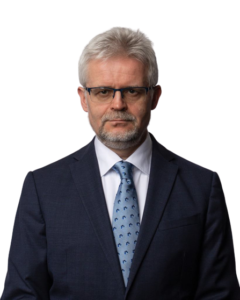
Amb Dr Urban Rusnák
Former Secretary General of the International Energy Charter (2012 - 2021)
Amb Dr Urban Rusnák is Coordinator at the Slovak Ministry of Foreign and European Affairs. In 2012–2021, he was Secretary-General of the International Energy Charter. Since 2019, he has provided support for the negotiations on the Energy Charter Treaty modernisation (concluded in 2022). In his earlier career, he was Leader of Slovakia's External Energy Security Project (2009–2011), Slovak Ambassador to Ukraine (2005–2009), Head of the Political Analysis Division (2003–2005), Deputy Head of the Embassy in Ankara (1994–1998) and Desk Officer for Central Asia and Caucasus (1993–1994). As First Executive Director of the International Visegrad Fund, he founded its HQ in Bratislava (2000–2003). Urban was also Director of the Slovak Institute for International Studies and Editor-In-Chief of the journal International Issues (1999–2000). He graduated from the Moscow Institute of Oil and Gas (1990) and received his PhD from Ankara University (1998). He also holds a Dr.H.c. from the Kyiv Slavonic University (2009). Currently he is advising the Brussels Diplomatic Academy at Vrije Universiteit Brussels on Energy Transition Diplomacy. He is also an Honorary Research Fellow at the University of Dundee.
Monday, 21 November
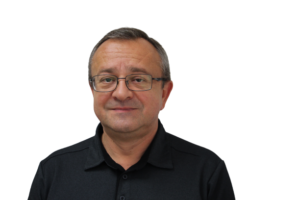
Alexander Duleba
CEEC Director, Slovak Foreign Policy Association
Alexander Duleba is Senior Fellow at the Research Centre of the Slovak Foreign Policy Association (RC SFPA) and Director of the Central European Energy Conference. In 2000–2019 he served as the RC SFPA director. Since 1995 he has been working for RC SFPA as the head of the Eastern Europe Research Programme. In 1993–1995 he was an analyst with the Slovak Institute for International Studies at the Slovak foreign ministry. In 2010 he became a lecturer at the Institute of Political Science at Prešov University. He was awarded a PhD in political science from the Slovak Academy of Sciences in 1998, made reader at Comenius University in Bratislava in 2009, and awarded a professorship from Masaryk University in Brno in 2019.
Chair
Pavol Demeš, Member of the Board, Slovak Foreign Policy Association
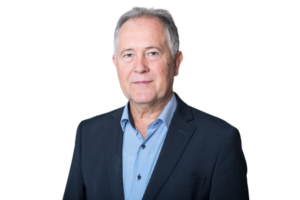
Pavol Demeš
Member of the Board, Slovak Foreign Policy Association
Pavol Demeš is an independent foreign policy analyst, civil society expert and TV anchor. He is a non-resident senior transatlantic fellow with GMF US and is a board member of the European Endowment for Democracy. After the Velvet Revolution in 1989 he served as Executive Director of the Slovak Academic Information Agency–Service Center for the Third Sector. In 1991–1992 he was Slovak Minister of International Relations and then Foreign Policy Advisor to the President of the Slovak Republic (1993–1997). From 2000 until September 2010 he was Director for Central and Eastern Europe of the German Marshall Fund of the United States. He has his own TV programme on international relations and diplomacy on tasr.tv and publishes articles and books on international relations and civil society.
Speakers
Karel Hirman, Minister of Economy of the Slovak Republic
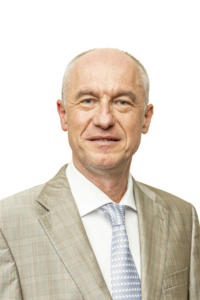
Karel Hirman
Minister of Economy of the Slovak Republic
Karel Hirman was appointed Minister of the Economy of the Slovak Republic in September 2022. Prior to that he worked in energy and international trade and as a manager and member of the management bodies of several Slovak energy companies and the Slovak Innovation and Energy Agency. He managed the ELENA energy efficiency project run by the regional government in Prešov. He was also an external energy adviser to Minister of Foreign Affairs Miroslav Lajčák and Prime Minister Iveta Radičová and was the expert in charge of the energy section of the PS/Spolu election manifesto. He was an energy expert on the team of advisers to Ukrainian Prime Minister Volodymyr Hrojsman. He has also worked for the weekly Trend and regularly publishes on energy and international security issues. He is a member of the Board of Directors of the SFPA.
Yaroslav Demchenkov, Deputy Minister of Energy of Ukraine for European Integration (online)
Alexander Duleba, CEEC Director, Slovak Foreign Policy Association

Alexander Duleba
CEEC Director, Slovak Foreign Policy Association
Alexander Duleba is Senior Fellow at the Research Centre of the Slovak Foreign Policy Association (RC SFPA) and Director of the Central European Energy Conference. In 2000–2019 he served as the RC SFPA director. Since 1995 he has been working for RC SFPA as the head of the Eastern Europe Research Programme. In 1993–1995 he was an analyst with the Slovak Institute for International Studies at the Slovak foreign ministry. In 2010 he became a lecturer at the Institute of Political Science at Prešov University. He was awarded a PhD in political science from the Slovak Academy of Sciences in 1998, made reader at Comenius University in Bratislava in 2009, and awarded a professorship from Masaryk University in Brno in 2019.
Q&A
Chair
Richard Kvasňovský, Executive Director, Slovak Gas and Oil Association
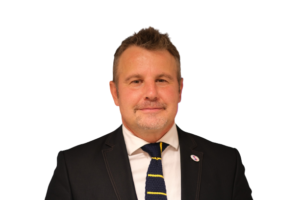
Richard Kvasňovský
Executive Director, Slovak Gas and Oil Association
Richard Kvasňovský has been Executive Director of the Slovak Gas and Oil Association since June 2019, where he is mainly responsible for industry communication. Most of his professional career has been associated with public media. In 1998–2007, he worked at Slovak Radio, where he alternated between the editorial office of international life and the domestic editorial office, where he was the editor and moderator of news and discussion programmes. Since 2009, he has worked for TASR press agency as head of the domestic editorial office and sits on the TASR Board of Directors. He has won several journalism awards for his work.
Speakers
Annamária Fehér, Head of CEO's cabinet, MVM CEEnergy

Annamária Fehér
Head of CEO's cabinet, MVM CEEnergy
Annamária Fehér is Head of the CEO's Cabinet at MVM Energy. As a manager she is responsible for developing the business strategy and for general affairs such as corporate communication and subsidiary governance. Annamária is a member of the IGU (International Gas Union) Sustainable Committee. Previously she was responsible for Hungarian Gas Storage's international and domestic lobbying activities and actively participated in the work of Gas Infrastructure Europe. In recent years, her work has focused on analysing the potential for innovation in the energy value chain from a business and regulatory perspective and drawing up plans for sector integration to achieve the 2050 decarbonisation targets. She is co-creator of the HGS’s hydrogen-related pilot project called Project Aquamarine. Annamária received a degree from Corvinus University of Budapest in quantitative economics and has more than ten years of experience in the gas industry.
Miroslav Kulla, Chairman of the Board of Directors and Chief Executive Officer, SPP

Miroslav Kulla
Chairman of the Board of Directors and Chief Executive Officer, SPP
Miroslav Kulla is Chairman of the Board and General Director of Slovenský plynárenský priemysel. From 2002 to 2005, he held various positions at Slovak Telecom. From 2005, he worked at VSE Holding, first as Deputy Financial Director and Development Manager, then in 2006 to 2022 as Chairman of the Board, General Director, a member of the board and Commercial Director. From 2008 to 2022, he was the manager of RWE Gas Slovensko and its successor company, innogy Slovensko. Between 2013 and 2016, he was Operations Director and a member of the board of directors at RWE Hrvatska/RWE Energija. He is a graduate of ESCP-EAP, Paris Business School and the Faculty of Management at Comenius University in Bratislava.
Rastislav Ňukovič, Director General, EUSTREAM
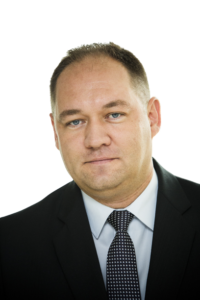
Rastislav Ňukovič
Director General, EUSTREAM
Rastislav Ňukovič has been President of the Slovak Gas and Oil Association since September 2022. He started his career in the gas industry in 1998 in the Slovtransgas SPP division, where he worked as an IT systems administrator and later became the head of the assembly and technical support department. From 2005 to 2008, he was head of Centralised Maintenance and for the next four years head of the strategic projects section. Since July 1, 2014, he has been CEO of EUSTREAM. He is a long-term member of the executive committee of the Technical Association of the European Gas Industry (Marcogaz). Rastislav studied at the Faculty of Electrical Engineering and Informatics of the Slovak Technical University in Bratislava. Between 2000 and 2002, he completed his postgraduate studies, specialising in the gas industry at the Faculty of Environmental Protection of the Technical University of Applied Sciences in Prague
Sergii Pereloma, Chief Executive Officer, Ukrtransgaz
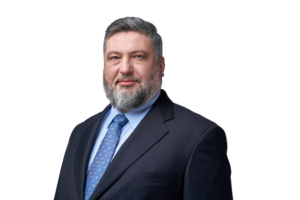
Sergii Pereloma
Chief Executive Officer, Ukrtransgaz
Sergii Pereloma has been Head of the Storage System Operator of Ukraine (Ukrtransgaz) since August 2020. In 2014–2021 Sergii Pereloma was First Vice President of the Naftogaz Group. Before that, he held key positions in large Ukrainian financial and industrial companies. He has many years of experience in building and implementing business strategies, managing large enterprises and investment projects in the energy, mechanical engineering, and bank sectors, and has an excellent knowledge of the energy sector and gas markets. He graduated from the Institute of International Relations at Taras Shevchenko National University of Kyiv.
Q&A
Chair
Martin Jirušek, Assistant Professor, Masaryk University

Martin Jirušek
Assistant Professor, Masaryk University
Martin Jirušek is Assistant Professor at Masaryk University, Czech Republic, and Managing Editor of the Czech Journal of Political Science. He also works as a consultant and analyst. Martin has conducted several research projects in Central and Eastern Europe, Russia, and the United States. He received a Fulbright research scholarship and spent ten months as a visiting researcher at George Washington University in Washington, DC (2021/2022). He was also selected for the International Visitors Leadership Program (2019), a prestigious professional programme run by the United States Department of State. He was also awarded the James S. Denton Transatlantic Fellowship by the Center for European Policy Analysis (2019). Martin regularly publishes in prestigious scientific outlets and publishing houses (e.g. Palgrave Macmillan, Elsevier). Martin’s work focuses on geopolitics, energy security, and the transatlantic dimension of energy relations.
Chair
Robert Jambrich, Head of International relations, EU affairs and Environment, Slovenské elektrárne
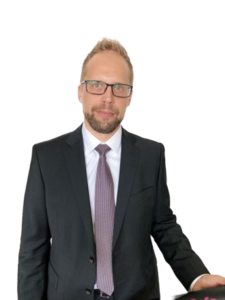
Robert Jambrich
Head of International relations, EU affairs and Environment, Slovenské elektrárne
Robert Jambrich has worked for Slovenské elektrárne since 2009 and is Head of International Relations, European Affairs and the Environment. His responsibilities include the analysis and implementation of Slovak and European regulatory and legislative frameworks pertaining to the environment, coordinating institutional relations with European and national stakeholders and analysing financing opportunities within European funding schemes for the company’s development projects. Previously, he worked at the Antimonopoly Office of the Slovak Republic. He graduated in 2005 with a degree in Corporate Finance from the Faculty of Business Management at the University of Economics in Bratislava.
Speakers
Aleš Doucek, Chairman of the Board, HYTEP

Aleš Doucek
Chairman of the Board, HYTEP
Aleš Doucek is Chairman of the Board of the Czech Hydrogen Technology Platform. He has been a board member since 2013 and is Head of the Hydrogen Technology and Innovations in Energy department. He has worked at ÚJV Řež since 2018, focusing on hydrogen technologies. Aleš is also a member of the coordination group for the National Clean Mobility Action Plan, co-chairman of the Working Group for Hydrogen Mobility at the Ministry of Transport of the Czech Republic and a member of the hydrogen platform at the National Council for Hydrogen and the Hydrogen Coordination Group at the Ministry of Industry and Trade. He graduated from the University of Chemistry and Technology in Prague, where he obtained a doctorate in the field of chemical and energy fuel processing.
Gábor Dudás, Head of Business Development, FGSZ

Gábor Dudás
Head of Business Development, FGSZ
Gábor Dudás is Head of Business Development at FGSZ – the Hungarian natural gas transmission system operator (May 2022). His main focus is short- and long-term network development, relations with other system operators and regional gas market analysis. Since 2012 he has held various expert and managerial positions at FGSZ. He was the company’s Brussels representative for the European Network of Transmission System Operators for Gas (ENTSOG) for 3 years. Gábor graduated with a degree in petroleum and natural gas engineering from the Faculty of Earth Sciences at the University of Miskolc, Hungary.
Christophe Grudler, Member of the European Parliament, Renew Europe Group (video message)
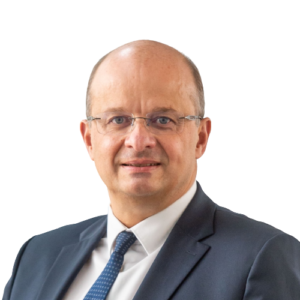
Christophe Grudler
Member of the European Parliament, Renew Europe Group (video message)
Christophe Grudler is a French Member of the European Parliament and belongs to the Renew Europe group. He is a historian and journalist by training and entered politics at an early stage in his career. He is closely involved in local politics in his home town of Belfort, where he has been elected as a local representative several times. Within the European Parliament, he is Vice-Coordinator of the ITRE Committee (Industry, research and energy) for Renew Europe. He also sits on the Foreign Affairs and Security and Defence committees. Furthermore, he is Vice President of the European Parliament's Sky & Space Intergroup. He is actively engaged in energy and industry issues. He was appointed European Parliament rapporteur for the Own Initiative report on Energy System Integration and shadow rapporteur for the report on Batteries and Waste Batteries. Under the Fit-For-55 Package, he was appointed shadow rapporteur for the revision of the renewable directive (RED II).
Tommy Isaac, Head of Hydrogen Research, Progressive Energy Limited
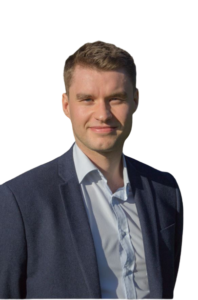
Tommy Isaac
Head of Hydrogen Research, Progressive Energy Limited
Tommy Isaac is Head of Hydrogen Research at Progressive Energy Ltd, based in the UK. Tommy is an engineering fellow and both a chartered chemical and mechanical engineer. He has nearly a decade of experience in the low carbon hydrogen industry, working across operational, commercial, and technical roles. The focus of Tommy's work is in the creation of technical and economic evidence to support the UK Government's hydrogen policy development programs, principally concerning the initial introduction of hydrogen into the existing system, and extending to the full conversion of the natural gas network and end users. He is a recognised expert in the UK on technical and regulatory matters within the hydrogen industry and a member of various government and parliamentary advisory groups, as well as an active member on several key hydrogen industry committees.
Ján Weiterschütz, Chairman, Slovak National Hydrogen Association
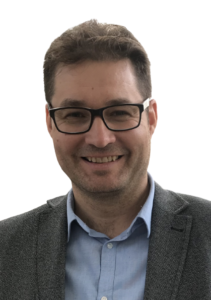
Ján Weiterschütz
Chairman, Slovak National Hydrogen Association
Ján Weiterschütz has been the Chairman of the Slovak National Hydrogen Association since June 2021. He graduated from the Technical University of Vienna with a degree in Renewable Energy Systems and has experience in project design, implementation and management in the field of renewable energy sources. He seeks to use his knowledge and experience to actively contribute to building a national hydrogen ecosystem to mitigate climate change, improve the state's energy security and stabilise energy prices. His aim is to help create new business opportunities and jobs in the nascent hydrogen sector of the economy. With the support of international hydrogen agencies, he transfers knowledge and experience to facilitate the construction and sustainable operation of emerging hydrogen valleys. He helped draft the National Hydrogen Strategy and is currently working on the Action Plan as advisor to the Minister of Economy for hydrogen issues as part of Slovakia's transition to a carbon neutral society. He cooperates with industry, municipalities, the third sector, scientists and researchers to identify barriers to the introduction of hydrogen technologies. He reviews strategic, legislative and regulatory documents so that his plans turn into reality and Slovakia becomes a better place to live.
Q&A
Chair
Mark Ossel, Member of the Board, OSGP Alliance, Member of the European Commission Coordination Group – Smart Electricity Grid
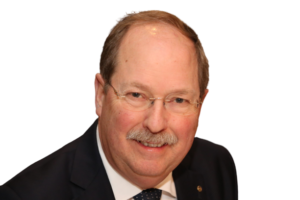
Mark Ossel
Member of the Board, OSGP Alliance, Member of the European Commission Coordination Group – Smart Electricity Grid
Mark B.M. Ossel is a board member of the OSGP Alliance and Senior Vice President of the NES Corporation. He focuses on the Energy Transition and the impact on the Smart Grid and Smart City. Mark sits on various standard committees in CEN/CELELEC, IEC, ETSI and is a member of the European Commission Coordination Group Smart Energy Grids. As part of the Networked Energy Services Corporation (NES), he is globally responsible for partnerships and strategic relations. He has been Executive in AMR since 2001, when Echelon started Enel (It), the world’s largest AMR project, and has been involved in most large scale deployments in Europe. Mark is also a member of Rotary International (Club President, PHF) and a non-executive member of various boards. He has a degree in marketing and economics, and a background in international management in ICT and Energy & Utility markets.
Speakers
Peter Dovhun, General Director, SEPS
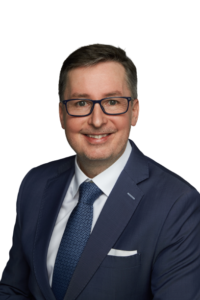
Peter Dovhun
General Director, SEPS
Peter Dovhun has been Chairman of the Board and CEO of the Slovak Electricity Transmission System (SEPS) since February 2021. He has over 25 years of managerial and business experience in team building and leading, managing organisational change, development and sustainable growth and as part of the executive management team. Before being appointed to his current post, he worked as a consultant and advisor to heads of private companies and public organisations, including the Ministry of Finance of the Slovak Republic and related organisations. Peter graduated from the Faculty of Foreign Trade at the University of Economics in Bratislava.
Peter Simko, Founder and CEO, PowereX Energy
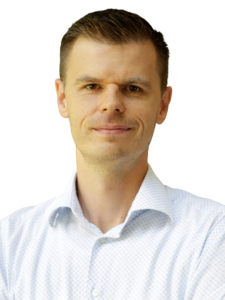
Peter Simko
Founder and CEO, PowereX Energy
Peter Simko is Founder and CEO of PowereX Energy. Peter is an experienced energy professional who focuses on designing and developing solutions relating to energy infrastructure resilience, energy decentralisation, artificial intelligence and energy decarbonisation.
Ruslan Slobodian, State Inspectorate of the Energy Supervision (online)
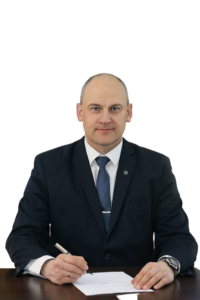
Ruslan Slobodian
State Inspectorate of the Energy Supervision (online)
Ruslan Slobodian has been Chairman of the State Inspection of Energy Supervision in the city of Kyiv since September 2021. Between May 2011 and October 2015 he was deputy marketing director at JSC Khmelnytskoblenergo and from October 2015 to August 2016 he was Deputy CEO responsible for management development and IT director. From August 2016 to September 2017 he was IT director at JSC Khmelnytskoblenergo and then, until September 2021, technical director in the city of Khmelnytskyi. He graduated from the State Technical University in Vinnitsa in 2009 with a master's degree in electrical engineering, then he specialised in economics at the National University of Economics in Ternopil and in 2021 was awarded a master's degree in business administration (MBA) from the Khmelnytskyi branch of Donetsk National University.
Q&A
Uladzimir Rak, Head of the Energy Security Department of iSANS

Uladzimir Rak
Head of the Energy Security Department of iSANS
Uladzimir Rak is Head of Energy Security and is working on energy reforms in Belarus. Previously Uladzimir worked at the Joint Institute of Power and Nuclear Research and at the Institute of Power Engineering at the National Academy of Science. He helped develop Belarus’s Energy Security concept, energy system development forecasting and National Determination. He was a technical expert for the Covenant of Mayors in Belarus. He graduated from the Belarusian State Technological University.
The students attempted to find answers to these questions: What steps should EU countries, the European institutions, or you yourself take so the European project can successfully tackle this challenge? Does the European Union have sufficient tools at its disposal to handle this crisis? Is it possible to find a balance between comfort and the cost of living? Is switching to alternative sustainable energy sources the solution? What lessons could the EU take from these events? Will the EU come out of this situation stronger? How would you proceed?
The competition was announced by the Hanns Seidel Foundation, the Tuneg, Púčik and Tesár Foundation and members of the European Parliament Ivan Štefanec and Luděk Niedermayer.
Chair
Ingrid Brocková, State Secretary, Ministry of Foreign and European Affairs of the Slovak Republic
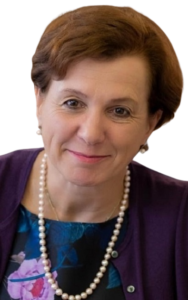
Ingrid Brocková
State Secretary, Ministry of Foreign and European Affairs of the Slovak Republic
Ingrid Brocková has been State Secretary of the Ministry of Foreign and European Affairs of the Slovak Republic (MFEA) since April 2022. Prior to that she was the Ambassador and Permanent Representative of the Slovak Republic to the OECD (2011–2015, 2018–2020). In the interim years she was Director General for Economic Cooperation at the MFEA and from 2001 to 2008 Country Manager of the World Bank in Slovakia. She joined the MFEA in 1993. Her areas of expertise are mainly economic diplomacy and development assistance. She holds a Doctorate in Economics from the Slovak Technical University, Bratislava. In 1999 she obtained a Masters in International Public Policy (MIPP) from the Paul H. Nitze School of Advanced International Studies at the Johns Hopkins University in Washington, DC, USA.
Speaker
Tim Gould, Chief Energy Economist, International Energy Agency
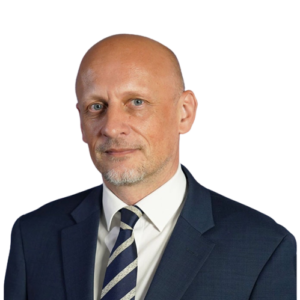
Tim Gould
Chief Energy Economist, International Energy Agency
Tim Gould was appointed the Agency’s Chief Energy Economist in 2021. As Chief Energy Economist, he provides strategic advice on energy economics across a wide range of IEA activities and analysis. He is also Head of the Division for Energy Supply and Investment Outlooks, in which capacity he co-leads the World Energy Outlook and oversees the Agency’s work on investment and finance, including the World Energy Investment report. Prior to joining the IEA, Mr Gould worked on European and Eurasian energy issues in Brussels and has ten years of experience in Eastern Europe, primarily in Ukraine. He graduated from Oxford University and has a post-graduate diploma from the School of Advanced International Studies of Johns Hopkins University.
Commentary
Jan Osička, Associate professor, Masaryk University
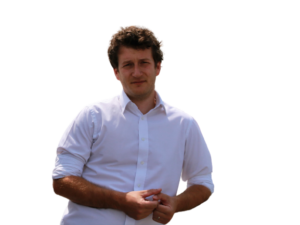
Jan Osička
Associate professor, Masaryk University
Jan Osička is a researcher and lecturer in energy politics at Masaryk University in the Czech Republic. His academic background is in International Relations and International Political Economy. His research expertise is on energy transitions, energy trade and the cross-border effects of national energy policies. He leads working groups in the COST action Foreign Policy New Realities and the Jean Monnet network Green Deal Net. He has been involved in research projects on natural gas trade and infrastructure, local acceptance of energy infrastructure and energy transition in Europe.
Q&A
Chair
Zsolt Gál, Department of Political Science, School of Arts, Comenius University
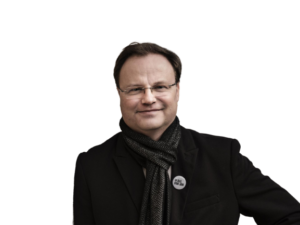
Zsolt Gál
Department of Political Science, School of Arts, Comenius University
Zsolt Gál is assistant professor at the Department of Political Science, Faculty of Arts, Comenius University in Bratislava. He holds an MA degree in Political Science from the department and a PhD degree in Economics from Corvinus University in Budapest, Hungary. His research interests include public finances, economic aspects of European integration, economic transformation in Central and Eastern Europe and international migration. He teaches several courses in these fields at Comenius University. He is the author of the book The 2007–2009 Financial Crisis: What Went wrong and What Went Different? (2011) and his work has been published in several edited volumes and academic journals. Recently, he contributed a chapter (From Economic Transformation to Energy Transition: The Legacy of Thirty Years of Post-Communist Development) to From Economic to Energy Transition. Three Decades of Transitions in Central and Eastern Europe, edited by Matúš Mišík and Veronika Oravcová and published by Palgrave Macmillan in 2021.
Speakers
Kateřina Davidová, Analyst, Europeum Institute for European Policy

Kateřina Davidová
Analyst, Europeum Institute for European Policy
Kateřina Davidová is Senior Research Fellow at EUROPEUM Institute for European Policy where she leads the climate team. She focuses on EU and Czech climate and energy policy, and the Central European region’s transition to a low-carbon economy. Kateřina is also affiliated with the Centre for Transport and Energy and has worked in both the public and the private sector.
Radovan Ďurana, Analyst, Institute of Economic and Social Studies
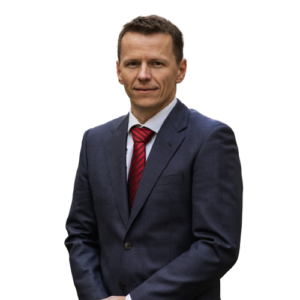
Radovan Ďurana
Analyst, Institute of Economic and Social Studies
Radovan Ďurana works as an analyst at INESS. After completing his studies at the Faculty of Management of the Comenius University in Bratislava, he worked in the credit risk department of a foreign commercial bank. Since the founding of INESS in 2006, he has performed economic analyses of the public finances and state economic policy. Recently, his interest has turned to decarbonisation and he is the author of How to Compensate Industry for Indirect Carbon Costs and the New Tax Slovakia has had for a Long Time: Consumption Carbon Tax on Motor Fuels.
Tomáš Jungwirth Březovský, Head of the Climate Team, Association for International Affairs
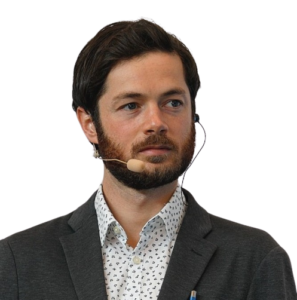
Tomáš Jungwirth Březovský
Head of the Climate Team, Association for International Affairs
Tomáš Jungwirth Březovský is the founder and Head of AMO Climate Team. He focuses on numerous challenges related to climate change and the low-carbon transition, and follows developments in the Western Balkans. In the past, Tomáš has worked as a policy officer for the Czech Migration Consortium, and as a political analyst, campaign manager and school teacher. He graduated in law and went on to study human rights and democratisation in Sarajevo and Bologna. He was later awarded a fellowship at the European University Institute in Florence where he studied climate mitigation and adaptation in a transnational context. At present, he is working with the Environment Ministry on negotiations relating to the 2022 Czech Presidency to the Council of the EU.
Michal Pintér, Director of Governmental and EU affairs, U. S. Steel Košice
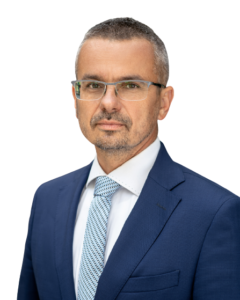
Michal Pintér
Director of Governmental and EU affairs, U. S. Steel Košice
Michal Pintér has been Director of Government, EU Affairs & REACH at U.S. Steel Kosice (USSK) since January 2007. He represents USSK in the Slovak National Union of Employers as Chair of the European and Foreign Affairs Committee, as Vice President of the American Chamber of Commerce in Slovakia, in the Czech Steel Union as a member of the Supervisory Board and in the European Steel Association EUROFER. Michal is also coordinator for delegates in the Employers Category of the Consultative Commission for Industrial Change at the European Economic and Social Committee, representing Eurofer and APEAL. Prior to joining USSK, he was Senior Economic Specialist at the United States Embassy in Bratislava for nine years. He also has several years of experience in financial news reporting
Daniel Urban, Chairman of the Board, Steel Union
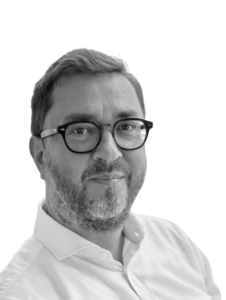
Daniel Urban
Chairman of the Board, Steel Union
Daniel Urban is Chairman of the Board of the Steel Union, which brings together major Czech and Slovak steelmakers. He is involved in a wide range of issues from energy and climate policy to international trade on both the national and European levels. Previously, he worked as Public Affairs Manager for ArcelorMittal Ostrava and has held various positions in the energy sector, focusing on regulation, market liberalisation and security of supply. Daniel has a degree in Political Science from Charles University in Prague.
Q&A
Chair
Martin Hájek, Director, Association for the District Heating of the Czech Republic
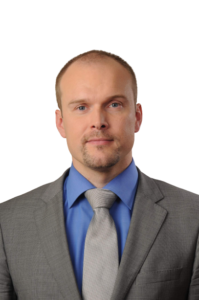
Martin Hájek
Director, Association for the District Heating of the Czech Republic
Martin Hájek has been Vice President of the European heating industry association Euroheat&Power since 2020. In 2010 he was appointed Director of the Executive Department of the Heating Association of the Czech Republic. Prior to that, he worked at International Finance Corporation, where he was involved in the Programme for the Development of Commercial Financing of Energy Saving Projects (CEEF) in the Czech Republic and other Central and Eastern European countries. Before that he worked at Pražská teplárenská, where he was Advisor to the General Director for Strategy. Martin Hájek studied Economics and Energy Management at the Faculty of Electrical Engineering at the Czech Technical University in Prague.
Speakers
Wanda Buk, Vice-President of the Management Board for Regulatory Affairs, PGE Polska Grupa Energetyczna S.A.

Wanda Buk
Vice-President of the Management Board for Regulatory Affairs, PGE Polska Grupa Energetyczna S.A.
Wanda Buk is Vice-President for Regulatory Affairs of PGE Polska Grupa Energetyczna S.A. She holds the title of attorney, having graduated from the Faculty of Law and Administration at the University of Łódź, as well as the Faculty of French Business Law at the Université de Poitiers in France. She also attended the prestigious Leadership Academy for Poland programme organised by the Center for Leadership in cooperation with Harvard University. In September 2020, she was appointed to the Management Board of PGE Polska Grupa Energetyczna S.A. and made Vice-President for Regulatory Affairs. She has held the position of Undersecretary of State at the Ministry of Digital Affairs since July 2018. She has also been a member of the Committee for European Union, the Standing Committee of the Council of Ministers and the Joint Central Government and Local Government Committee.
Biljana Grbić, Consultant, Energy Community
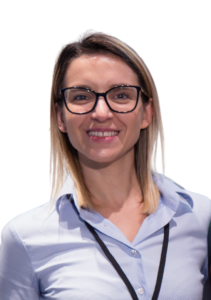
Biljana Grbić
Consultant, Energy Community
Biljana Grbić is an energy lawyer with more than seven years of diverse experience in the energy field. She has been working for the Energy Community Secretariat for three years, helping Contracting Parties align their legislation with the EU heating and cooling legislation. Before that she worked for a district heating company in Serbia for three years and at the Ministry of Mining and Energy of the Republic of Serbia. She is also a doctoral student at the University of Vienna, where she researches regulatory and policy aspects of district heating.
Eva Hoos, Policy Officer, Renewables and Energy System Integration Policy, DG ENER, European Commission (online)
The publication is part of a project focused on improving advocacy skills among Serbia’s civil society actors and enhanced participation in policymaking under the green transformation, focusing particularly on the coal phase-out through the transfer of know-how between V4 countries and Serbia. The project is supported by the International Visegrad Fund.
Chair
Michal Hrubý, Research Fellow, EUROPEUM Institute for European Policy
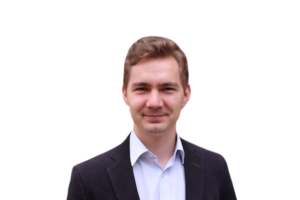
Michal Hrubý
Research Fellow, EUROPEUM Institute for European Policy
Michal Hrubý is an analyst at EUROPEUM Institute for European Policy. Michal has a master's degree in Economics from Škoda Auto University and is currently pursuing a master's in Mineral Raw Materials at the VSB Technical University of Ostrava. His research focuses on green economics, decarbonisation of heavy industries, and transport. He regularly contributes to reputable Czech media outlets. As part of EUROPEUM's climate team, Michal contributes to efforts to ground the public debate in relevant facts and information and to connect with and inform various stakeholders about developments in EU legislation.
Speakers
Dóra Csernus, Senior Climate and Environmental Policy Expert, Equilibrium Institute
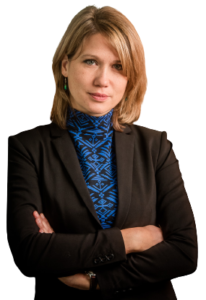
Dóra Csernus
Senior Climate and Environmental Policy Expert, Equilibrium Institute
Dóra Csernus is Senior Climate and Environmental Policy Expert at Equilibrium Institute. As an expert on environmental issues, she has worked for the Ministry of Environment and Water, the Office of the Parliamentary Commissioner for Future Generations and the Ministry of Public Administration and Justice, representing the Hungarian position in different EU, UN, and OECD fora. She was also Director for International Policy Development at Klímapolitika Research and Consultancy and an independent expert in climate and environmental issues. Her main focus is climate policy and air-quality control.
Alžbeta Gavalcová, Junior Researcher, Slovak Foreign Policy Association
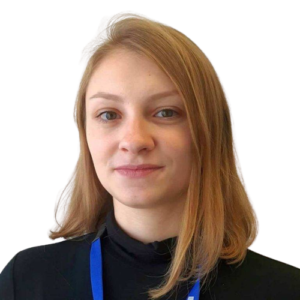
Alžbeta Gavalcová
Junior Researcher, Slovak Foreign Policy Association
Alžbeta Gavalcová is a junior research fellow at the Slovak Foreign Policy Association. She studied at the Faculty of International Relations at the University of Economics in Bratislava and focuses on the energy transition. Currently, she is completing a degree at Masaryk University in Brno. The topic of her thesis is energy policy coherence. She also completed a traineeship at the European Commission.
Tatiana Mindeková, Junior Researcher, EUROPEUM Institute for European Policy

Tatiana Mindeková
Junior Researcher, EUROPEUM Institute for European Policy
Tatiana Mindeková is Junior Researcher and Project Manager at EUROPEUM Institute for European Policy. She focuses on a wide range of climate and decarbonisation issues, including the Czech decarbonisation experience, green disinformation and EU climate policies. She also has a keen interest in geothermal energy. She studied International Relations at Canterbury Christ Church University. She holds a master’s degree in Environment, Politics & Society from University College London.
Wojciech Szymalski, Director, Institute for Sustainable Development Foundation
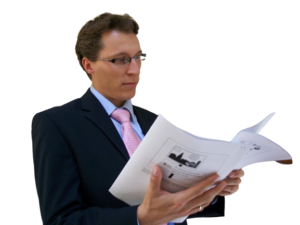
Wojciech Szymalski
Director, Institute for Sustainable Development Foundation
Wojciech Szymalski has been working for the Institute for Sustainable Development in Warsaw since 2009. He is involved in projects focusing on climate change and adaptation to climate change. In 2010 he was leader of a LIFE+ project called Good Climate for Counties (DOKLIP). In 2014 he led another LIFE+ project, ADAPTCITY, where the main aim was to prepare a City Adaptation Strategy for Warsaw. Since 2019 he has collaborated on international teams for a number of other ISD Foundation projects, such as LIFE_UNIFY and LIFE_Together_For_1.5. The projects focus on climate policy in Europe.
Chair
Katarína Nikodemová, Director, Buildings for the Future

Katarína Nikodemová
Director, Buildings for the Future
Katarína Nikodemová is Director of Buildings for the Future. She specialises in public policy and advocacy and has expertise at both the national and European level. After graduating with a degree in Political Science and European Studies, she worked for the European Commission and European Parliament in Brussels, the Slovak parliament and several reputable NGOs. She has knowledge and professional policy experience in energy efficiency, sustainability and climate change. Buildings for the Future is a platform of associations active in the building sector. Its main mission is to actively shape public policy with the aim of promoting high-quality building construction and renovation, while paying particular attention to energy efficiency, the quality of the indoor environment and building regulations.
Speakers
Justyna Glusman, Managing Director, Fala Renowacji
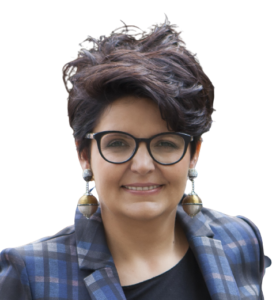
Justyna Glusman
Managing Director, Fala Renowacji
Justyna Glusman is Managing Director of Association Renovation Wave Poland which promotes energy efficiency improvements in the building sector. Previously, she was Deputy Mayor and Sustainable Development Head Coordinator at Warsaw City Hall, where she was in charge of implementing the air quality improvement programme, climate adaptation and mitigation policies for the city of Warsaw as well as improvements to vegetation and metropolitan green space management and integration. Justyna graduated from the Warsaw School of Economics with an MA and from the LSE, where she obtained a PhD in the political economy of European integration as well as an Executive MSc in Cities. She is an expert on public affairs, territorial self-government, regional policy design and implementation. She is also a member of the Climate & Space Commission at the Ombudsman Office and a member of the Civic Congress Programme Council.
András Reith, CEO, Advanced Building and Urban Design

András Reith
CEO, Advanced Building and Urban Design
András Reith is Associate Professor at the University of Pécs, Pollack Mihály Faculty of Engineering and Information Technology, Hungary, and CEO of Advanced Building and Urban Design. He has worked in sustainable architectural planning and consultancy for more than two decades. He was an expert reviewer for the fifth UN IPCC (Intergovernmental Panel on Climate Change) report, leading author of the Climatic and Energy Concept of the Budapest Urban Development Concept and former President of the Hungary Green Building Council. He was a visiting researcher at Harvard and has been invited to speak at many universities. In 2019, he received the Dennis Gabor Award, the highest national prize in the field of innovation and research in engineering. Currently, his research and work focus on sustainable and regenerative urban design, especially the digital twins of positive energy districts and energy communities. He has studied in Hungary, Germany and Spain. In 2005, he defended his PhD thesis and received the highest honours.
Ľubica Šimkovicová, President of Passive House Institute Slovakia, Manifest2020

Ľubica Šimkovicová
President of Passive House Institute Slovakia, Manifest2020
Ľubica Šimkovicová is an expert in sustainable concepts in the building industry, design of buildings and urban development. A graduate of the STU Faculty of Civil Engineering, she has worked in project management and lectured and consulted on sustainable research projects. She has been CEO of the Passive House Institute Slovakia for the past nine years. She has also coordinated several EU projects managed by the Chief City Architect's Office, City of Bratislava, dealing with a wide range of issues related to climate change, housing stock renovations and the creation of energy positive districts. Ľubica launched Manifest2020, an initiative set up to address the impact of the building sector on the environment, climate and biodiversity in Slovakia. She helped Ukrainian refugees by responding to Japanese architect Shigeru Ban's call to use the Paper Partition System invented by his team.
Lívia Vašáková, Director General of the Recovery Plan Department, Government Office of the Slovak Republic

Lívia Vašáková
Director General of the Recovery Plan Department, Government Office of the Slovak Republic
Lívia Vašáková is Director General of the Recovery Plan Section at the Office of the Government of the Slovak Republic. Previously she was Head of the Economic Analysis Section at the Representation of the European Commission in Slovakia and at the Directorate General for Energy in the European Commission in Brussels. In 2016, she was the only woman to feature among the Euractiv 40 most influential people in the Slovak energy industry. Lívia studied at the University of Economics in Bratislava and at several universities abroad. She also has a postgraduate studies diploma from the Europa-Kolleg in Hamburg and a PhD from Comenius University in Bratislava.
Lenka Vaněk, Head of the Innovation and Decarbonisation, ČEZ ESCO

Lenka Vaněk
Head of the Innovation and Decarbonisation, ČEZ ESCO
Lenka Vaněk is Director of the Department of Innovation and Decarbonisation at ČEZ ESCO Group. The role of the department is to identify trends, potential and innovations, and incorporate them into the company’s strategy. ČEZ ESCO group is a strong player in green energy. Lenka's primary focus is strategy, innovation and development.
Q&A
Chair
Diana Motúzová, Editor, Energie-portal.sk
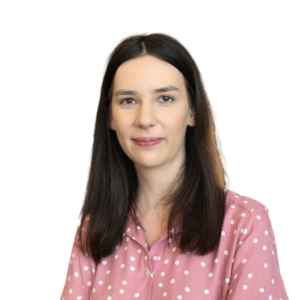
Diana Motúzová
Editor, Energie-portal.sk
Diana Motúzová is an editor of the professional daily news website Energie-portal.sk. She studied international relations at Charles University in Prague, specialising in Russia and the post-Soviet space. After graduating from university as a marketing specialist, she created external communication content for a company developing new technology in the field of geothermal energy. She later worked as an assistant to a member of the Slovak parliament. Since 2018, she has worked as editor for Energie-portal.sk, Odpady-portal.sk, and Voda-portal.sk, which provide news, analysis and commentaries targeted at industry representatives, entrepreneurs, institutions and municipalities.
Speakers
Tamás Jászay, Power Plant Director, Metropolitan Waste to Energy Plant - Budapest Utilities (BKM)
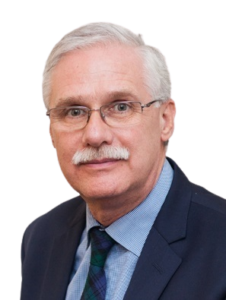
Tamás Jászay
Power Plant Director, Metropolitan Waste to Energy Plant - Budapest Utilities (BKM)
Tamás Jászay has been Power Plant Director of the Waste to Energy Plant at BKM, Budapest Utilities since 2021. He is an expert in energy and finance with many years of experience. He has held multiple high-ranking positions such as Corporate Development Director at RWE Hungária, ELMŰ/ÉMÁSZ, board member and Executive Director of Eurocorp International Finance, and Secretary to the Board of Directors of MVM. He has also worked in the public sector as personal assistant to the State Secretary for Energy at the Ministry of Industry and Trade. He was awarded an MSc from the Technical University of Budapest. Tamás Jászay also studied at the Banff School of Advanced Management in Canada.
Miloš Kužvart, Executive Director, Czech Association of Circular Economy
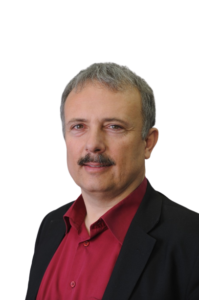
Miloš Kužvart
Executive Director, Czech Association of Circular Economy
Miloš Kužvart has been Executive Director of the Czech Association for the Circular Economy since 2018. He has a wealth of experience from both the private and public sectors, focusing especially on the environment and energy. He has held a range of positions such as Minister of Environment of the Czech Republic, 1998–2002; Member of Czech Parliament 2002–2006, Director of the PHARE programme management unit for the Czech Republic for the non-profit sector. He was also a lecturer at the Faculty of Science at Charles University in Prague and at the Faculty of Environment at the University of Jana Evangelisty Purkyně. Furthermore, he was CEO of TÜV NORD Czech and project manager for secondary energy sources at SGS CZ. He undertook postgraduate studies in Earth Remote Sensing at Charles University, Faculty of Science in Prague.
Ivana Maleš, Institute of Circular Economy

Ivana Maleš
Institute of Circular Economy
Ivana Maleš is co-founder of the Institute for the Circular Economy of the Slovak Republic (INCIEN). Her work involves creating policies and strategies for the circular economy that are both practice-oriented and targeted at sustainability and climate neutrality solutions.
Miroslav Mravec, Technical Director, Veolia Energia Slovensko
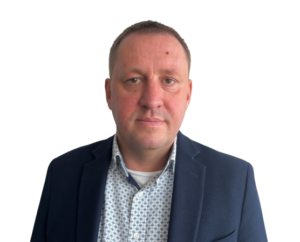
Miroslav Mravec
Technical Director, Veolia Energia Slovensko
Miroslav Mravec is Technical Director of the Veolia Energia Slovakia group. He is senior manager at the Technical Directorate with responsibility for investment processes and investment activities, acquisitions, digitization and the implementation of technical projects within the framework of Veolia's global goals. Miroslav manages several important group projects, such as projects on greening the group and the strategies of selected subsidiaries. He has worked for Veolia Energia Slovensko group since 2014, where he started out as renewal specialist for Petržalka and was gradually promoted to business partner and then senior manager at C-bau, a subsidiary company. He has worked in heating and energy since 1998.
Michal Struk, Sustainability and Circularity Institute

Michal Struk
Sustainability and Circularity Institute
Michal Struk works as a researcher at the Sustainability and Circularity Institute and the Department of Regional Economics and Administration at Masaryk University in Brno. He is Head of the Department of Finance and Accounting at Jan Evangelista Purkyně University. His work is primarily on the economics of municipal waste management including environmental economics, public administration, public (municipal) finance and public project evaluation (including non-market effects). He is keen to further explore ways of improving people’s behaviour and habits regarding waste generation and separation, among other things, and the wider performance of related public services.

Veronika Oravcová
CEEC Executive Director, Slovak Foreign Policy Association
Veronika Oravcová is a Research Fellow at the Slovak Foreign Policy Association and a Research Assistant at the Department of Political Science at Comenius University in Bratislava. Her research interests are centred on energy transition and energy security in Central and Eastern Europe, she is a co-editor of From Economic to Energy Transition. Three Decades of Transitions in Central and Eastern Europe (Palgrave: London, 2021), several chapters on energy transition, and several papers on Slovak energy policy.

